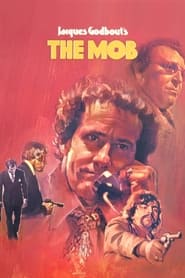Pierre Turgeon (born 9 October 1947) is a Canadian novelist and essayist from Quebec.
He was a journalist and literary critic at Perspectives and Radio-Canada. He is also a co-founder of l'Illettré with Victor-Lévy Beaulieu, Jean-Marie Poupart, Jean-Claude Germain and Michel Beaulieu. He is the author 22 books and of many screenplays, including a dramatization of the October Crisis.
Turgeon's family has deep roots within Quebec's history; his ancestors were among the first to settle in New France in 1662. He was born in Quebec City, Quebec and completed his studies in literature at the Collège Sainte-Marie in 1967. In 1968, he joined Radio-Canada, where he became a literary critic, signing broadcasts on foreign writers and becoming the host for Book Club, a radio weekly critical review of current literature directed by Gilles Archambault. He also pursued a career as a journalist in Perspectives. In 1969, he founded l'Illettré with Victor-Lévy Beaulieu, Jean-Marie Poupart, Jean-Claude Germain and Michel Beaulieu. In 1970, he published his first novel, Sweet Poison, which received a warm welcome by critics and the public.
In 1972, Turgeon won first prize for Dramatic Works at the CBC for The Interview, which he wrote with Jacques Godbout. This radio play served as inspiration for the feature-length movie La Gammick (1975), starring Marc Legault, Julien Poulin, Serge Thériault and Dorothée Berryman. In 1975, he founded Quinze Books, and was a publisher there for three years. During this period, he published many novels, including Coming Attraction and One, Two, Three. He wrote La Fleur aux dents, a movie starring Claude Jutra. The Quiet Revolution, which changed the Quebec society in the 1960s, greatly inspired Turgeon in his works during that period.
In 1970, the October Crisis was one of the key moments in Canadian history. It gave birth to the controversial film The October Crisis produced by the CBC and Radio-Canada and directed by Mark Blandford. In 1978, he became director of the press at the Université de Montréal (PUM). From 1979 to 1985, he was the manager and publisher of the Sogides Group (L'Homme, Le Jour, Quinze). In 1981, his talent as a novelist was recognized with the release of The First Person which received the Governor General's Award for French-language fiction. ...
Source: Article "Pierre Turgeon (writer)" from Wikipedia in English, licensed under CC-BY-SA 3.0.
He was a journalist and literary critic at Perspectives and Radio-Canada. He is also a co-founder of l'Illettré with Victor-Lévy Beaulieu, Jean-Marie Poupart, Jean-Claude Germain and Michel Beaulieu. He is the author 22 books and of many screenplays, including a dramatization of the October Crisis.
Turgeon's family has deep roots within Quebec's history; his ancestors were among the first to settle in New France in 1662. He was born in Quebec City, Quebec and completed his studies in literature at the Collège Sainte-Marie in 1967. In 1968, he joined Radio-Canada, where he became a literary critic, signing broadcasts on foreign writers and becoming the host for Book Club, a radio weekly critical review of current literature directed by Gilles Archambault. He also pursued a career as a journalist in Perspectives. In 1969, he founded l'Illettré with Victor-Lévy Beaulieu, Jean-Marie Poupart, Jean-Claude Germain and Michel Beaulieu. In 1970, he published his first novel, Sweet Poison, which received a warm welcome by critics and the public.
In 1972, Turgeon won first prize for Dramatic Works at the CBC for The Interview, which he wrote with Jacques Godbout. This radio play served as inspiration for the feature-length movie La Gammick (1975), starring Marc Legault, Julien Poulin, Serge Thériault and Dorothée Berryman. In 1975, he founded Quinze Books, and was a publisher there for three years. During this period, he published many novels, including Coming Attraction and One, Two, Three. He wrote La Fleur aux dents, a movie starring Claude Jutra. The Quiet Revolution, which changed the Quebec society in the 1960s, greatly inspired Turgeon in his works during that period.
In 1970, the October Crisis was one of the key moments in Canadian history. It gave birth to the controversial film The October Crisis produced by the CBC and Radio-Canada and directed by Mark Blandford. In 1978, he became director of the press at the Université de Montréal (PUM). From 1979 to 1985, he was the manager and publisher of the Sogides Group (L'Homme, Le Jour, Quinze). In 1981, his talent as a novelist was recognized with the release of The First Person which received the Governor General's Award for French-language fiction. ...
Source: Article "Pierre Turgeon (writer)" from Wikipedia in English, licensed under CC-BY-SA 3.0.
Show more expand_more
keyboard_double_arrow_down

